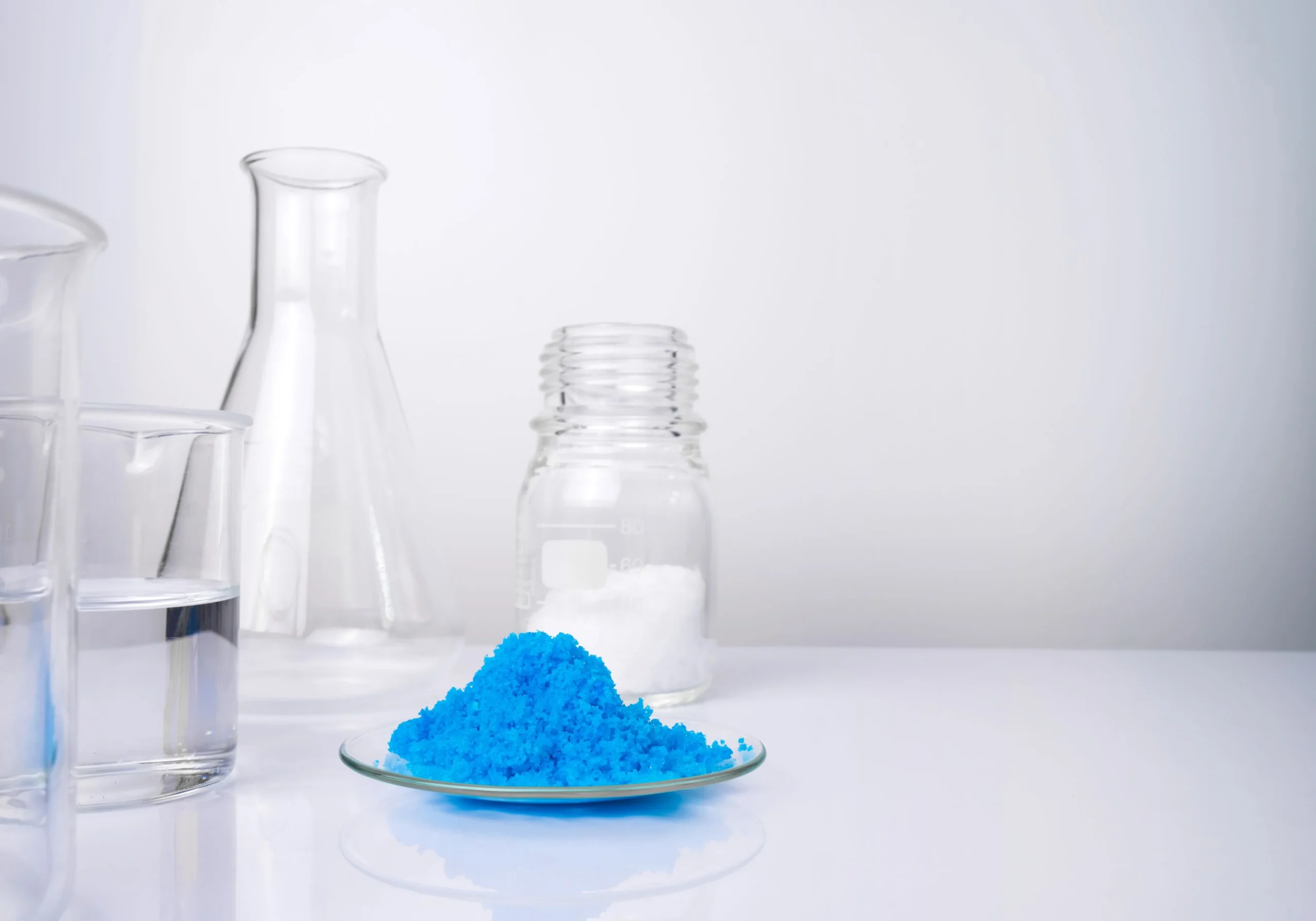Copper sulphate, also known by the names cupric sulfate or cupro sulfate, has numerous applications across many industries. Copper sulfate can be found in many products and processes, from aquaculture and agriculture to manufacturing and medicine. In this article, you’ll learn about the varied copper sulfate uses. Its importance and versatility are highlighted.
- Applications for Agriculture:
Copper sulphate’s fungicidal or bactericidal effects are used extensively in agriculture. It is widely used as an antifungal to combat fungal diseases of crops like citrus fruits, grapes, potatoes and tomatoes. Copper sulfate may also be used in irrigation systems, lakes, and ponds as an algicide and herbicide. Its ability to control plant diseases and insects makes it a valuable tool in promoting crop health.
- Animal Feed Ingredients:
In the animal husbandry industry, copper sulfate may be added to livestock, poultry species, and aquatic species as a nutritional supplement. Copper is an essential trace element needed for various physiological processes such as enzyme activities, iron metabolism, or connective tissue formation. Copper sulfate can be added to feed for animals to help prevent copper shortages and promote growth, health, & reproduction.
- Electroplating:
In the manufacturing industries, copper is deposited on metal surfaces using copper sulfate. This electroplating method enhances the corrosion resistance, conductivity, and aesthetic appeal of metal parts, components, and other metal products.
- Wood Preservative:
Copper sulfate acts as a natural wood preservative that protects lumber, timber, and other materials from decay. Injecting wood with a copper-sulfate solution penetrates the wood fibers and creates a protective shield against fungi. Treated wooden products are often used as outdoor structures like fences, railway ties and utility poles. These products extend their life span and durability.
- Veterinary Medicine:
Copper sulfate has been used in veterinary medicine as an antiseptic to treat skin infections. Also applied topically, it treats foot ulcers. Its antimicrobial characteristics help prevent infections and promote wound healing. This makes copper sulfate a valuable tool to veterinary practitioners for the management of animal conditions.
- Laboratory Reagent:
Copper sulfate has been used for many years as a laboratory reagent. It is commonly used in education, research, and analysis of chemicals. It is a common laboratory reagent used for chemical analysis, research and education. Its unique blue colour in solution allows it to be used to visualise reactions and identify copper compounds.
- Electrolyte used in Batteries
Copper sulphate is the electrolyte and electrode used in certain types of batteries, including copper-zinc and copper/cadmium batteries.
- Gemstone Patination
The art has used copper sulphate- and jewellery-making industries as a patination or colouring agent for copper and brass. By using a solution of copper sulfate on metal surfaces, artists are able to achieve various shades such as blue, black or green patinas.
- Educational Demonstrations:
Copper sulfate is often used in educational demonstrations, experiments, and lessons to illustrate chemical concepts and phenomena. Its solubility makes it a great choice for students and teachers exploring concepts in chemistry, such as stoichiometry.
Copper sulfate offers a number of diverse applications in different industries. Its antifungal, anti-bacterial, and other properties, which are used in agriculture, aquaculture, manufacturing, and medicine, make copper sulfate a very useful tool to promote innovation, health and productivity. Copper sulfate is likely to continue evolving as research and technologies advance. Its importance and applications are also expected to increase.















Leave a comment